Top Guide: The Covid-19 pandemic has had an adverse effect on investment into emerging economies, including Ghana. As the pandemic recedes, how is Ghana positioning itself to rebound as an investment destination?
Mr. R. Yofi Grant: The Covid pandemic impacted the global economy in several ways, including investment, particularly in Africa. The United Nations Development Programmeme (UNDP) and the United Nations Conference on Trade and Development (UNCTAD) indicated that Foreign Direct Investment would drop by 42 per cent in 2020 and 15 per cent in the year after that; so, as a nation, we were affected. The quarantines, closure of borders and other measures that had to be taken clearly had an impact; nonetheless in 2020, we saw an increase in our FDI inflow. Luckily, we didn’t experience the disasters that had been predicted based on our weak healthcare systems. The government’s priority was to save lives and preserve livelihoods, which was done through interventions such as free water and electricity and the CAP Buss programmeme to support businesses. Prior to Covid, our economy was one of the fastest growing in the world, with an average of 7 per cent growth in GDP between 2017 and 2019. Even in the midst of the pandemic, we were one of the few countries to show a positive growth in our economy somewhere in the region of 0.4 per cent in 2020.
In 2021, we experienced a 4.5 per cent growth, which showed that we still had some resilience in the economy. Ghana positioned itself fairly well in the face of the pandemic; we had an inter-ministerial committee that came up with the Ghana C.A.R.E.S. programmeme [Ghana COVID-19 Alleviation and Revitalisation of Enterprises Support]. Between March and December 2020, during its first phase, the reliefs programmes for people and businesses that I spoke about were implemented.
The second part of the programmeme is between 2021 and 2023 and that is the part that seeks to revitalize businesses. With that, the government has selected some sectors through which we can build back better and build resilience along with it. One of these sectors is agriculture and agro-processing where we are supporting a lot of young people to get involved and help boost food security. Another thing we focused on was the need for a more robust infrastructure, including inter-city road networks. The pandemic also showed that we needed to invest more in our healthcare system
and infrastructure in general, so the government started a programme to build one hundred and eleven hospitals around the country under an Agenda 111, so that we would be better prepared for the next health emergency. Again, all over the world, as in-person interactions were reduced to the barest minimum, people had to find ways to procure goods and services from wherever they were and that gave a boost to the technology and fintech companies. In Ghana, we saw more people begin to order food online for example. Given that the government has also made clear its ambition to digitalise the economy, I can see great opportunities in that space. Another area of focus for the Ghana C.A.R.E.S is housing and construction. It has become clearer how desperately we need more social housing in Ghana, so this part of the programmeme will help make more homes available for those who need it. In terms of selling our message as an investment destination, we are doing this through activities such as the Virtual 2020 Accra Sustainable Development Goals Investment Fair and Dubai Expo 2020 that we participated in. We also have periodic roadshows, breakfast meetings and other interactions to encourage investors and help them build their presence in the Ghanaian market. Additionally, are focusing on the Ghanaian diaspora whom we believe can make significant contribution through their investment and skills.
Top Guide: What are some of the ways in which investors can participate or take advantage of the Ghana C.A.R.E.S policy?
Mr. R. Yofi Grant: In fact, the government’s intention is to have the private sector take the lead on a lot of the programmes that came out of the pandemic and Ghana C.A.R.E.S. Almost all the areas it focuses on, require private sector capital. Out of the GHs 100 billion allocated for it, the government would contribute GHs 30 billion, while the other GHs 70, billion would come from the private sector, with GIPC taking the lead to bring in the relevant investors to take advantage of these opportunities. So, we have identified some areas that we think investors can take advantage of. In agriculture and agro processing, there are opportunities in rice, tropical fruits, shea, cashew, palm oil, sugar plantation and processing, integrated poultry, cattle, dairy, and fish farms. We have manufacturing, where investors can take advantage of the One District One Factory policy and partner us in our quest to add value to our natural resources. We also have space for industrial assemblies, oil refineries, fabric production and PPE manufacturing. Investors may also consider healthcare and allied areas such as pharmaceutical and medical devices manufacturing, construction of diagnostic labs and vaccine production. The housing component of the programmeme opens up opportunities for construction of affordable homes and the local production of inputs.
Top Guide: In recent times, there have been some concerns in the global financial community about the Ghanaian economy, due to its debt position and the volatility of the cedi. How can you assure them that Ghana remains a robust and favourable investment destination?
Mr. R. Yofi Grant: First of all, I don’t think there are any countries that came out of the pandemic unscathed. Even much richer countries had to borrow trillions of dollars to support their economies. Ghana also needed to take similar measures to protect our economy and survive the pandemic. Prior to the pandemic, the country had successfully reduced inflation, doubled economic growth within the first three years, the cedi was adjudged the best performing currency in Africa, we had reduced the fiscal deficit, improved the external payment position, and reduced interest rates in line with declining inflation expectations. No doubt that the Covid-19 pandemic brought challenges including the adverse effect on growth and productivity.
That notwithstanding, Ghana still received encouraging FDIs which are a testament to its position as a favoured investment destination and a confirmation of the positive investor sentiments. So, while we have seen some impact, you will find that our plans for growing the economy have remained on track. We were one of the few countries to avoid a recession and maintain positive growth. In 2021, we beat our own projections for growth and this year, we are expecting to grow by at least 5.5 per cent. For an investor, nothing is more important than growth and that’s what we continue to demonstrate. We are still a very attractive destination – we have our resources and our plans for transforming the economy are on track. I will therefore remind investors that there is nowhere better to go than Africa and Ghana is right at the forefront of bringing credible investment into the continent. As such, investors should come and partner with us in our quest to bring economic freedom to our citizens. It is also important to note the lessons that we have come out of the pandemic with. We are now even more focused on changing the structure of our economy. We are diversifying away from the export of raw materials to value addition. We have the 1D1F programmeme which has one hundred and six factories in operation and another one hundred and forty-eight under construction. There is the automotive industry which is taking shape and we are also building an integrated aluminum and bauxite industry in partnership with Rocksure International. We are very confident that we offer investors a great proposition.
Top Guide: The AfCFTA among other things is supposed to harmonise investment rules and create a level-playing field for investors, as well as improve the ease of doing business in Africa. What do you expect the AfCFTA impact to be on FDI in Ghana?
Mr. R. Yofi Grant: The AfCTFA is a very credible opportunity for Africa to create wealth. I think it makes no sense at all for Africa to export our resources and then import finished goods made from those very resources. With our possessions, we are in a great position to accelerate growth on the continent. It is important for us to build the right partnerships for linkages and trade. What the AfCTFA does, is create the largest tariff-free zone in the world today. We have fifty-five countries, the majority of which have signed the agreement. If we are to take advantage of this, over USD 80 billion will be added to the African economy from SMEs alone. Currently intra-African trade is only about 16 per cent, compared to the EU, where it is in the region of 60 per cent. The United Nations Economic Commission for Africa estimates that with AfCTFA, we can increase this to about 25 per cent or USD 70 billion by 2040. With the AfCTFA, we get to create a single, large economy with increased power and huge opportunities So Ghana, for example, can export its cocoa and the products from it to other parts of the continent, tariff-free. We don’t have to export our raw beans outside the continent and import finished products. Let’s look at the mineral wealth. There is copper in Zambia that can be used or the automotive industries in Ghana, South Africa, Morocco and Nigeria. Ghana stands to gain tremendously from this. We have declared that we will no longer export all our raw materials but rather add value to them through our 1D1F programmeme. So if we are doing this and we have a market of over 1.3 billion people, there is a lot that we can gain from that. By 2030, Business-to-Business spending in manufacturing is estimated to reach about US$666.3 billion. The manufacturing output is expected to reach US$1 trillion by 2025 and this is a good opportunity for Ghanaian manufacturing businesses under the AfCFTA.
Top Guide: As global investors look around for new opportunities in the wake of the pandemic, what are some of the opportunities in Ghana that investors can explore?
Mr. R. Yofi Grant: The conceptualisation of the Ghana C.A.R.E.S programmeme, I believe, offers significant opportunities for partnerships. In the health sector, for example, building the infrastructure, bringing in support services and technology, all present opportunities. Similarly, in the pharmaceutical sector, we have entered into partnerships with Senegal and Rwanda to produce vaccines and also conduct research. There are also great opportunities for Foreign Direct Investment into infrastructure, such as roads, railways etc as mentioned before. Manufacturing, agriculture and agribusiness, tourism and creative arts, ICT and Fintech, transport and transport services are all areas that investors can look at and be absolutely confident of returns on their investments.
It is clear, post-pandemic, that Africa presents a wonderful opportunity for global growth, through partnerships and linkages. We have the resources, the manpower and the market as well and there is no reason why we cannot take advantage of these to grow the continent and its finances. The days of seeing Africa as a dark continent are long gone. Over the past decade, six of the ten fastest growing economies in the world have been African. This is an entirely different narrative from years before. This is a continent on the move. This is a continent with potential. And this is a continent looking at a future that is much better than its past.


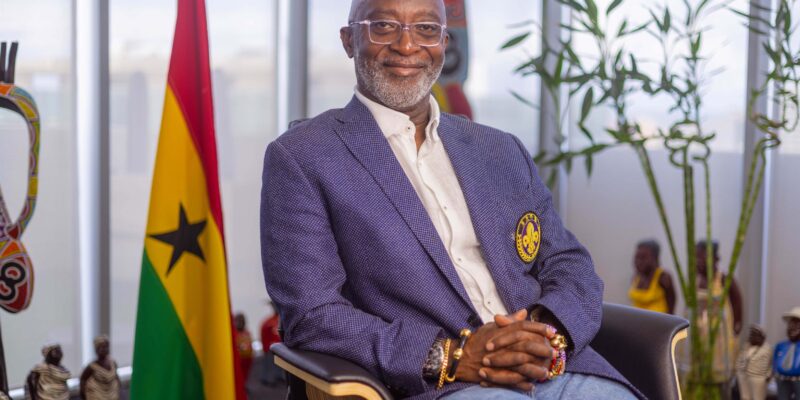
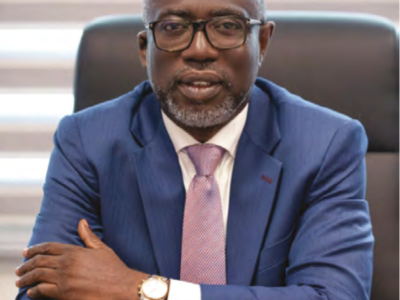
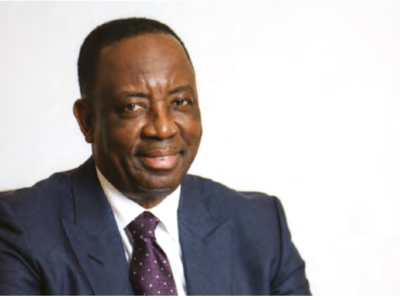
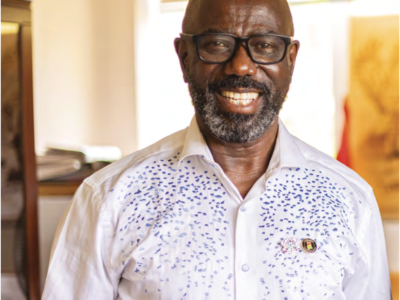
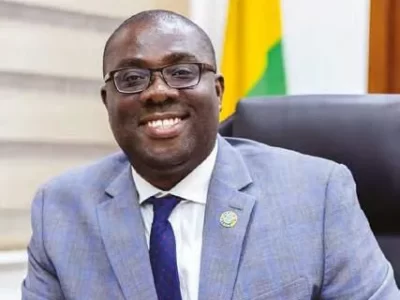
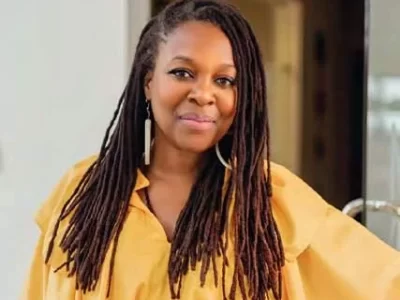
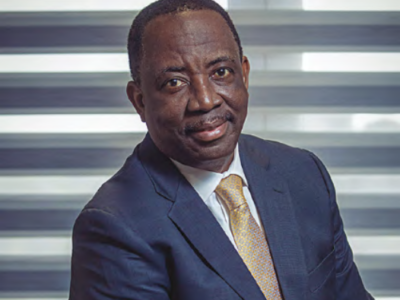
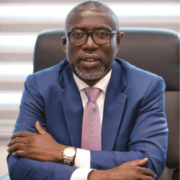
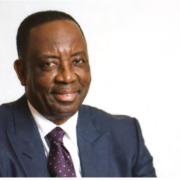
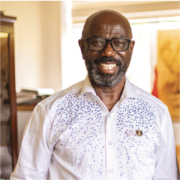
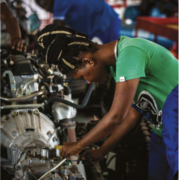
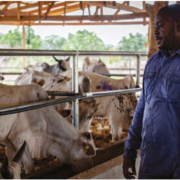
Comments